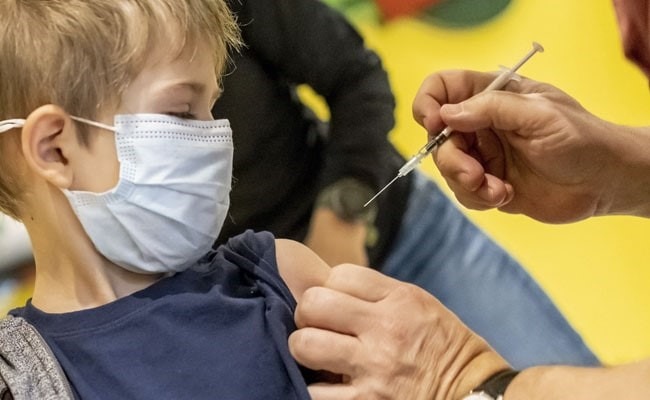
| Translate This News In |
|---|
According to a recent study, COVID-19 increases the risk of death in infants with particular immunodeficiency diseases because these children have anomalies in the genes that control their immune systems’ ability to fight off viral infections.
In the Journal of Allergy and Clinical Immunology, the study was published.
The majority of youngsters who contract the SARS-CoV-2 coronavirus experience just moderate sickness or exhibit no symptoms at all. Serious problems, however, may arise in a tiny minority of patients.
It is debatable how people with primary immunodeficiency conditions, such as genetic and congenital immune system disorders, may be affected by the virus. Even among these people, some have significant COVID-19 symptoms, and others have either minor symptoms or none at all.
The Karolinska Institutet studied young patients with primary immunodeficiency diseases (also known as inborn errors of immunity, IEI) who developed severe or critical SARS-CoV-2 infection in order to look into this issue more thoroughly and attempt to find genetic explanations for severe forms of COVID-19. Analysis of the immune system and genetic material was done.
“Our findings shed light on these immunological disorders’ molecular aetiology, which makes it possible to create a more specialised treatment. Our ability to create improved strategies for the treatment and prevention of severe COVID-19 disease in these individuals is also made possible by the insights gained from the study “declaring Qiang Pan-Hammarstrom.
31 kids from five months to 19 years old were enrolled in the study. All of the kids were affected by severe or critical COVID-19 and had some sort of primary immunodeficiency disorder that was not characterised by a molecular test. From August to September 2020, participants were sought after in Iran. A COVID-19 vaccination was not given to any of the kids.
Eleven of the kids, or more than one-third, passed away from infection-related problems. Five children, or 16%, satisfied the MIS-C criteria for the multi-inflammatory syndrome. The coronavirus wasn’t immune to some of the kids.
Hassan Abolhassani, assistant professor at the Department of Biosciences and Nutrition, Karolinska Institutet, and the study’s lead author, states that this suggests that many children with this kind of immune disease cannot produce antiviral antibodies and thus would not benefit fully from vaccination.
More than 90% of the participants, or 28 youngsters, had mutations in genes crucial for our immune system, which could explain their immunodeficiency, according to genetic investigations. Mutations that impact interferons, immune system-regulating proteins that are produced when a virus infects a person, were a significant mechanism.
According to assessments of the patients’ immune reactions, children with MIS-C have immunological profiles that are different from those of children with primary immunodeficiency who do not also have MIS-C.
In the study’s literature survey, which was conducted globally, the researchers discovered accounts of roughly 1,210 patients with primary immunodeficiency illness and COVID-19. Children made up about 30% of them. In contrast to the 0.01 percent mortality rate experienced by children in the general population, the mortality rate among children with primary immunodeficiency illness and COVID-19 was over 8%.
The study only includes children who are unvaccinated and have severe COVID-19 infections caused by the original virus strain. Additional research is required to determine the significance of various virus strains and vaccinations in this patient population.
The research was carried out as part of the ATAC research consortium, which was overseen by Karolinska Institutet and was sponsored by the European Commission in response to the COVID-19 pandemic.
The study’s implementation required close cooperation with Uppsala University, Tehran University of Medical Sciences, Iran University of Medical Sciences, Ahvaz Jundishapur University of Medical Sciences, North Khorasan University of Medical Sciences, Howard Hughes Medical Institute, Rockefeller University, and Necker Hospital for Sick Children in France.
Along with the Knut and Alice Wallenberg Foundation, other funders of the study were the Swedish Research Council.

















